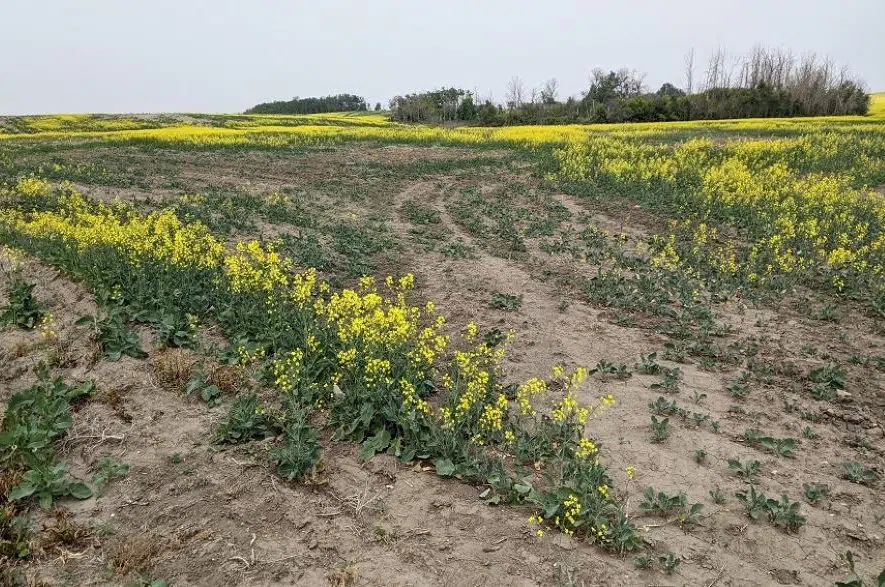Many farmers across Saskatchewan are declaring a state of disaster.
The ongoing drought in areas of the province has dried out crops and brought in a large number of grasshoppers.
“Since the crops were put in, grasshoppers have shown up in large numbers,” said Harvey Schulz, the reeve of the Rural Municipality of Excelsior.
“Significant damage has been done to crops, especially specialty crops. (Grasshoppers) seem to have devoured a fair bit of that.”
Schulz explained the grasshoppers are spread out throughout different farms, causing problems for everyone in the community.
Gophers are also present in that area. Schulz said they aren’t as much of a concern as grasshoppers, but are still a contributing factor to the problems farmers are facing.
“The gophers also have been a significant problem,” said Schulz. “Gophers a few years ago were very few and they’ve slowly been increasing.”
Schulz expressed his concern for the high possibility of grass fires in fields due to the lack of moisture the community has been experiencing.
Shortly after a meeting during which Excelsior declared itself in a state of emergency — as the RM of Dundurn also did — the provincial and federal governments stepped in to provide a glimpse of relief.
They announced a program through which farmers will be allowed to have their crops assessed to determine whether they’re still useful for feed.
“There’s also a shortage of feed, not only in our immediate area but the province of Alberta is in really bad shape for feed,” said Schulz. “It gives the farmers a bit of an alternative as to what to do with their crops so it’s a really important thing for the two governments to have come on board to offer that assistance.”
The governments noted the program will allow crop producers to make timed decisions to make feed available to silage, bale or graze.
When crops are overly damaged and the appraised yield goes below an established threshold, the crop insurance claim falls to zero. This year, the Saskatchewan Crop Insurance Corporation is doubling the low yield appraisal threshold, letting customers salvage their crops as feed.
“We are seeing dry pockets and grasshopper damage throughout the province, particularly in the southwest,” Saskatchewan Minister of Agriculture David Marit said in a statement. “We are committed to supporting our farmers and ranchers to lessen the impact of these challenging conditions.”
The same program was used in 2021, when more than 345,000 acres of crops were used for feed.











